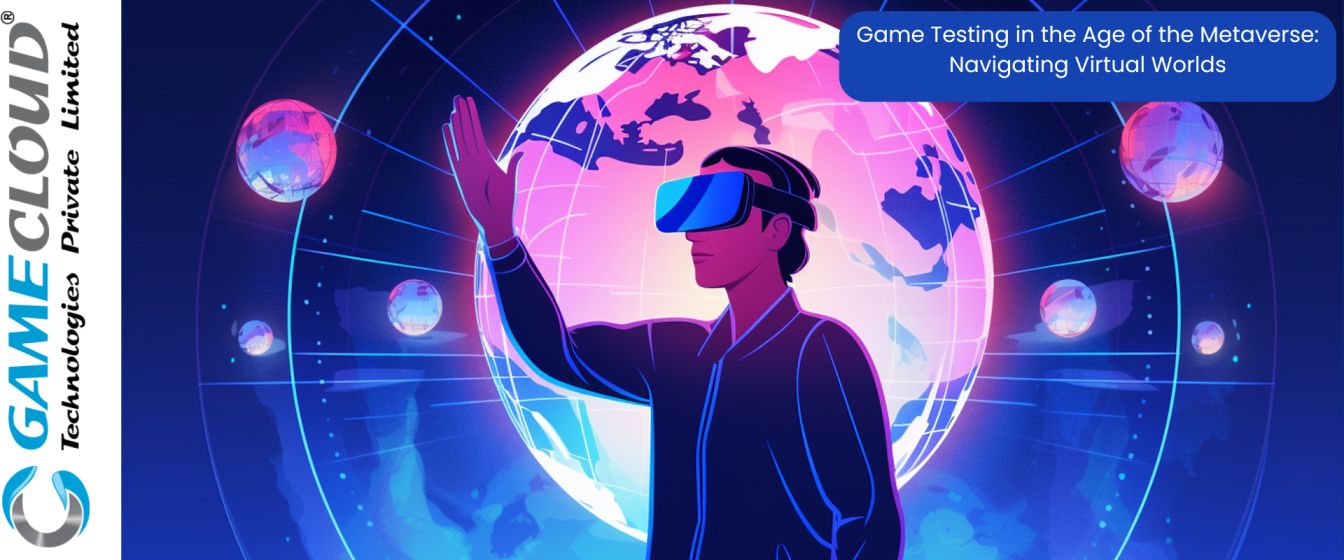
The metaverse, a collective virtual space combining AR, VR, and blockchain technologies, has grown significantly in recent years. In 2023, the metaverse market was valued at approximately $82 billion, with projections showing growth to $936 billion by 2030. In the gaming industry, the metaverse offers immersive and expansive virtual worlds, revolutionizing how users interact and play. Some popular platforms attract millions of active users daily, with some hosting over 55 million daily players.
As these virtual worlds become more complex, game testing is critical in ensuring smooth and functional experiences. Effective testing for bugs, performance issues, and cross-platform compatibility is crucial, especially as the metaverse expands beyond gaming into activities like virtual socialization. With 60% of gamers already using metaverse platforms for non-gaming purposes, robust game testing is essential to maintaining user engagement and satisfaction.
Unique Challenges of Game Testing in Virtual Worlds
Game testing in the metaverse presents unique challenges that traditional methods may not fully address. One of the primary difficulties is the vastness of virtual environments. Unlike conventional games, the metaverse features expansive, interconnected worlds that are constantly evolving. This requires comprehensive testing of a virtually endless space, which is more dynamic than static game levels.
Another challenge lies in real-time interactions between multiple players. The metaverse is designed for large numbers of users engaging simultaneously, making it crucial to test for server load, latency, and real-time synchronization across platforms.
Complex AI behavior, particularly with NPCs, adds to the complexity. NPCs in the metaverse need to adapt to player behavior and virtual environments in real-time, which demands extensive testing of their responses and interactions.
Lastly, ensuring smooth cross-platform gameplay across devices like VR headsets, mobile phones, and desktops is critical. This includes checking for bugs, performance issues, and glitches in real-time simulations, all of which are crucial to maintaining the immersive experience of the metaverse. These factors make game testing in virtual worlds both intricate and essential for providing a seamless user experience.
Evolving Game Testing Tools and Techniques
Modern game testing tools have rapidly adapted to meet the complex demands of the metaverse. Automation has emerged as a critical solution, significantly reducing human error in vast, dynamic environments. Automated testing scripts can simulate real-world scenarios at scale, identifying issues that manual testing might miss. This is essential as the metaverse grows, with more interactive and unpredictable virtual spaces.
AI and machine learning are also transforming game testing. These technologies enable predictive testing and anomaly detection, making it easier to identify potential bugs before they disrupt gameplay. AI-driven tools can analyze massive amounts of gameplay data, optimizing virtual experiences and ensuring a seamless user journey.
Furthermore, real-world user feedback and in-game metrics now play a vital role in shaping testing strategies. By analyzing how users interact with virtual worlds, developers can adjust testing methods to match the evolving needs of the metaverse, providing more personalized and efficient game environments
From Concept to Completion: GameCloud’s Seamless Support for Your Gaming Success
At GameCloud, we go beyond traditional video game testing, QA, and QC. Our goal is to ensure that your game’s monetization strategy is secure, the gameplay is smooth, and players enjoy the experience at every stage. Leveraging years of industry expertise, we’ve tailored services to support game developers and publishers of all sizes globally. From the initial concept and prototype to post-launch support, we’re dedicated to contributing to your video game’s success, ensuring it performs flawlessly even after release.
Conclusion
In conclusion, game testing plays a crucial role in the growth and success of the metaverse, ensuring that virtual worlds remain functional, immersive, and engaging. Quality assurance is vital for expanding the metaverse’s reach and adoption. As the metaverse evolves, game testing will likely integrate advanced AI and predictive analytics, enhancing user experiences and scalability.
For Know More Contact-Now
FAQs for: Game Testing in the Age of the Metaverse: Navigating Virtual Worlds
What is the role of game testing in the metaverse?
Game testing ensures that virtual worlds in the metaverse remain functional, immersive, and engaging. It involves identifying and resolving bugs, performance issues, and compatibility problems across platforms, enabling a seamless user experience in expansive and dynamic environments.
What challenges are unique to game testing in the metaverse?
Testing in the metaverse is challenging due to its vast, interconnected virtual worlds, real-time interactions among large user groups, complex AI behavior of NPCs, and the need for cross-platform compatibility. Ensuring smooth gameplay across VR headsets, mobile devices, and desktops adds to the complexity.
How are modern tools addressing the challenges of testing virtual worlds?
Advanced tools such as automation and AI-driven solutions are transforming game testing in the metaverse. Automation helps simulate real-world scenarios at scale, while AI and machine learning enable predictive testing, anomaly detection, and real-time analysis of user interactions, enhancing testing accuracy and efficiency.
Why is cross-platform compatibility essential in metaverse game testing?
Cross-platform compatibility ensures that users can enjoy consistent and immersive gameplay across various devices, including VR headsets, mobile phones, and desktops. Testing for bugs, latency, and performance issues on these platforms is critical to maintaining user engagement in the metaverse.
How does GameCloud support game testing in the metaverse?
GameCloud offers comprehensive testing services tailored to the unique demands of the metaverse. From prototype development to post-launch support, GameCloud leverages its expertise to ensure secure monetization strategies, smooth gameplay, and flawless performance in virtual worlds, enhancing the success of games across all platforms.
